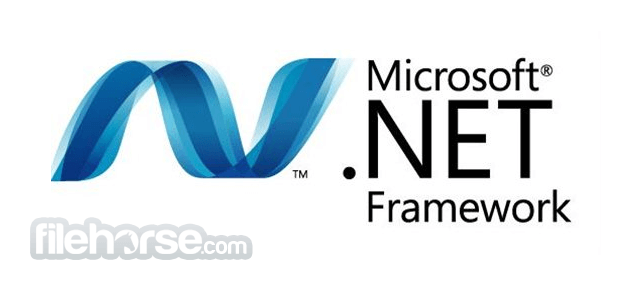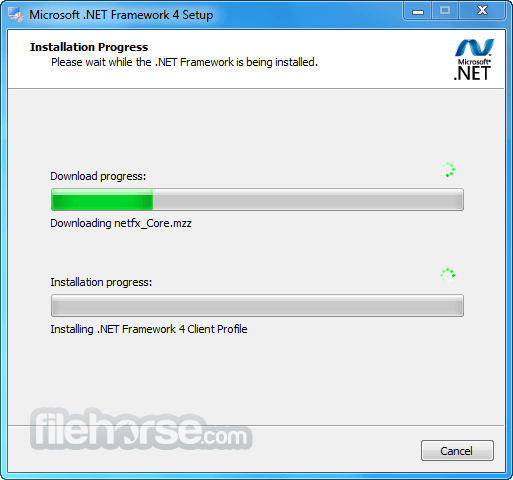-
Latest Version
-
Operating System
Windows 8 / Windows 8 64 / Windows 10 / Windows 10 64
-
User Rating
Click to vote -
Author / Product
-
Filename
NDP471-KB4033342-x86-x64-AllOS-ENU.exe
-
MD5 Checksum
660e1a104f209f3cdb55b6d4e9ffa475
Sometimes latest versions of the software can cause issues when installed on older devices or devices running an older version of the operating system.
Software makers usually fix these issues but it can take them some time. What you can do in the meantime is to download and install an older version of .NET Framework 4.7.1.
For those interested in downloading the most recent release of .NET Framework (4) or reading our review, simply click here.
All old versions distributed on our website are completely virus-free and available for download at no cost.
We would love to hear from you
If you have any questions or ideas that you want to share with us - head over to our Contact page and let us know. We value your feedback!
What's new in this version:
CORE:
Support for .NET Standard 2.0:
- .NET Standard defines a set of APIs that must be available on each .NET implementation that supports that version of the standard. The .NET Framework 4.7.1 fully supports .NET Standard 2.0 and adds about 200 APIs that are defined in .NET Standard 2.0 and are missing from the .NET Framework 4.6.1, 4.6.2, and 4.7. (Note that these versions of the .NET Framework support .NET Standard 2.0 only if additional .NET Standard support files are also deployed on the target system.)
Support for configuration builders:
- Configuration builders allow developers to inject and build configuration settings for applications dynamically at run time. Custom configuration builders can be used to modify existing data in a configuration section or to build a configuration section entirely from scratch. Without configuration builders, .config files are static, and their settings are defined some time before an application is launched
- To create a custom configuration builder, you derive your builder from the abstract ConfigurationBuilder class and override its ConfigurationBuilder.ProcessConfigurationSection and ConfigurationBuilder.ProcessRawXml. You also define your builders in your .config file
Run-time feature detection:
- The System.Runtime.CompilerServices.RuntimeFeature class provides a mechanism for determine whether a predefined feature is supported on a given .NET implementation at compile time or run time. At compile time, a compiler can check whether a specified field exists to determine whether the feature is supported; if so, it can emit code that takes advantage of that feature. At run time, an application can call the RuntimeFeature.IsSupported method before emitting code at runtime. For more information, see Add helper method to describe features supported by the runtime
Value tuple types are serializable:
- Starting with the .NET Framework 4.7.1, System.ValueTuple and its associated generic types are marked as Serializable, which allows binary serialization. This should make migrating Tuple types, such as Tuple<T1,T2,T3> and Tuple<T1,T2,T3,T4>, to value tuple types easier
Support for read-only references:
- The .NET Framework 4.7.1 adds the System.Runtime.CompilerServices.IsReadOnlyAttribute. This attribute is used by language compilers to mark members that have read-only ref return types or parameters. For more information, see "Compiler -- Support for ReadOnlyReferences" in the .NET Framework 4.7.1 Runtime and Compiler Features blog post. For information on ref return values, see Ref return values and ref locals (C# Guide) and Ref return values (Visual Basic)
COMMON LANGUAGE RUNTIME (CLR):
Garbage collection performance improvements:
- Changes to garbage collection (GC) in the .NET Framework 4.7.1 improve overall performance, especially for Large Object Heap (LOH) allocations. In the .NET Framework 4.7.1, separate locks are used for Small Object Heap (SOH) and LOH allocations, which allows LOH allocations to occur when Background GC (BGC) is sweeping the SOH. As a result, applications that make a large number of LOH allocations should see a reduction in allocation lock contention and improved performance
Support for portable PDBs:
- The .NET Framework starting with version 4.7.1 supports portable PDBs. While standard PDB files are Windows-only, portable PDB files can be created and read on all platforms. In most cases, the file format is transparent to an application running on a particular .NET implementation. An exception is an application that dynamically emits an assembly at run time; in this case, the ability to emit a portable PDB can offer a performance improvement and reduce the application's memory footprint. You can determine at run time whether portable PDBs are supported on the current .NET implementation by passing the string "PortablePdb" to the RuntimeFeature.IsSupported(String) method before emitting the assembly
NETWORKING:
SHA-2 support for Message.HashAlgorithm:
- In the .NET Framework 4.7 and earlier versions, the Message.HashAlgorithm property supported values of HashAlgorithm.Md5 and HashAlgorithm.Sha only. Starting with the .NET Framework 4.7.1, HashAlgorithm.Sha256, HashAlgorithm.Sha384, and HashAlgorithm.Sha512 are also supported. Whether this value is actually used depends on MSMQ, since the Message instance itself does no hashing but simply passes on values to MSMQ
ASP.NET:
Execution steps in ASP.NET applications:
- ASP.NET processes requests in a predefined pipeline that includes 23 events. ASP.NET executes each event handler as an execution step. In versions of ASP.NET up to the .NET Framework 4.7, ASP.NET can't flow the execution context due to switching between native and managed threads. Instead, ASP.NET selectively flows only the HttpContext. Starting with the .NET Framework 4.7.1, the HttpApplication.OnExecuteRequestStep(Action<HttpContextBase,Action>) method also allows modules to restore ambient data. This feature is targeted at libraries concerned with tracing, profiling, diagnostics, or transactions, for example, that care about the execution flow of the application
ASP.NET HttpCookie parsing:
- The .NET Framework 4.7.1 includes a new method, HttpCookie.TryParse, that provides a standardized way to create an HttpCookie object from a string and accurately assign cookie values such as expiration date and path
SHA-2 hash options for ASP.NET forms authentication credentials:
- In the .NET Framework 4.7 and earlier versions, ASP.NET allowed developers to store user credentials with hashed passwords in configuration files using either MD5 or SHA1. Starting with the .NET Framework 4.7.1, ASP.NET also supports new secure SHA-2 hash options such as SHA256, SHA384, and SHA512. SHA1 remains the default, and a non-default hash algorithm can be defined in the web configuration file
 OperaOpera 125.0 Build 5729.21 (64-bit)
OperaOpera 125.0 Build 5729.21 (64-bit) MalwarebytesMalwarebytes Premium 5.4.5
MalwarebytesMalwarebytes Premium 5.4.5 PhotoshopAdobe Photoshop CC 2026 27.1 (64-bit)
PhotoshopAdobe Photoshop CC 2026 27.1 (64-bit) BlueStacksBlueStacks 10.42.153.1001
BlueStacksBlueStacks 10.42.153.1001 OKXOKX - Buy Bitcoin or Ethereum
OKXOKX - Buy Bitcoin or Ethereum Premiere ProAdobe Premiere Pro CC 2025 25.6.3
Premiere ProAdobe Premiere Pro CC 2025 25.6.3 PC RepairPC Repair Tool 2025
PC RepairPC Repair Tool 2025 Hero WarsHero Wars - Online Action Game
Hero WarsHero Wars - Online Action Game TradingViewTradingView - Trusted by 60 Million Traders
TradingViewTradingView - Trusted by 60 Million Traders Edraw AIEdraw AI - AI-Powered Visual Collaboration
Edraw AIEdraw AI - AI-Powered Visual Collaboration




Comments and User Reviews